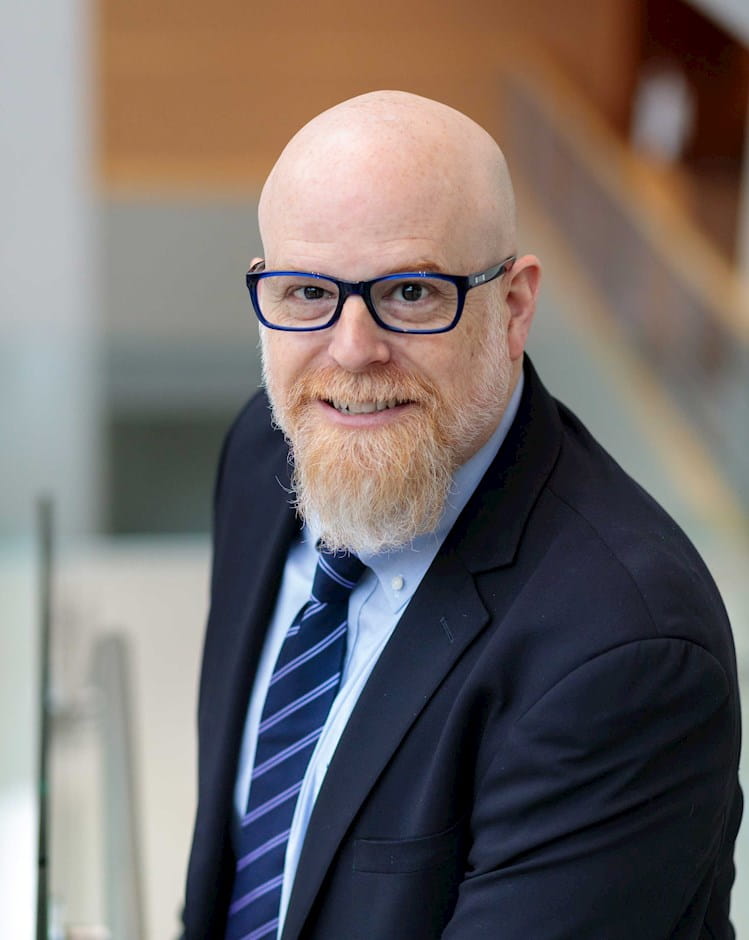Provost Katherine Baicker appointed Booth School of Business professor Erik Hurst as the new director of the Becker Friedman Institute for Economics (BFI), effective immediately. Baicker notified BFI affiliates and senior administrators of the appointment in an announcement on January 5.
“I am confident that under Erik’s leadership, BFI will continue its long-standing leadership in producing world-class research and ideas to help address the world’s most pressing economic challenges,” Baicker wrote in the announcement.
Hurst has served as the deputy director of the BFI since 2017 and will succeed Michael Greenstone, who was named the director of the new Climate and Energy Institute at the University of Chicago by President Paul Alivisatos on December 11. Hurst has been a member of UChicago’s faculty since 1999 and is a recipient of awards such as the TIAA-CREF Paul A. Samuelson Award for Outstanding Scholarly Writing on Lifelong Financial Security and the Ewing Marion Kauffman Prize Medal for Distinguished Research in Entrepreneurship. His work has been featured in The New York Times, The Wall Street Journal, The Washington Post, and The Economist.
Established in 2011, the BFI supports research from over 200 economists across the University’s Kenneth C. Griffin Department of Economics; Booth School of Business; Harris School of Public Policy; Law School; Pritzker School of Medicine; and Crown School of Social Work, Policy, and Practice.
“Our mission at BFI is to serve economists on campus and to help build bridges across the different units… to make sure that the whole is more than the sum of the parts,” Hurst said in an interview with The Maroon. “And so again, it is a mission I believe in. It is a mission I love, and one that I’m happy to be helping to continue.”
As the new director, Hurst expects to adopt a greater public presence through fostering communication with stakeholders, policymakers, and the media on behalf of the BFI. He is currently in the process of selecting an individual to fill the now-vacant deputy director role.
“It’s a two-person job,” Hurst said, referring to the director and deputy director positions at the BFI. “At some point, there’ll be a partner to come in with me, but we haven’t gotten to that stage yet.”
Hurst’s priority as the new director is to build bridges across faculty from the University’s various schools and departments. He hopes to continue hosting Becker Brown Bag lunches for students to learn from prominent speakers, Friedman Forum conferences and workshops with leading scholars and economic experts, and other modes of private programming to support cross-departmental conversation. Recently, the BFI invited Nobel Prize winner Michael Kremer to present his insightful research in the field of development economics.
As an economist specializing in macroeconomics, Hurst believes that the University of Chicago is the best institution for economic research, regardless of specialty. He further emphasizes the critical role the BFI plays in the dissemination of that research, saying, “We are a service organization; we are here to serve.”
“I think Chicago is by far the best place for economic research in the world, and in my subfield of macroeconomics, it’s not even close,” Hurst concluded. “And so for me, the environment at Chicago, the focus on big questions, the focus on rigorous inquiry, the focus on merging data and theory together, I think there’s no better place in the world. And I view myself as an ambassador of the Chicago economics community at-large. And that’s one reason why I want to be here relative to any other place.”









